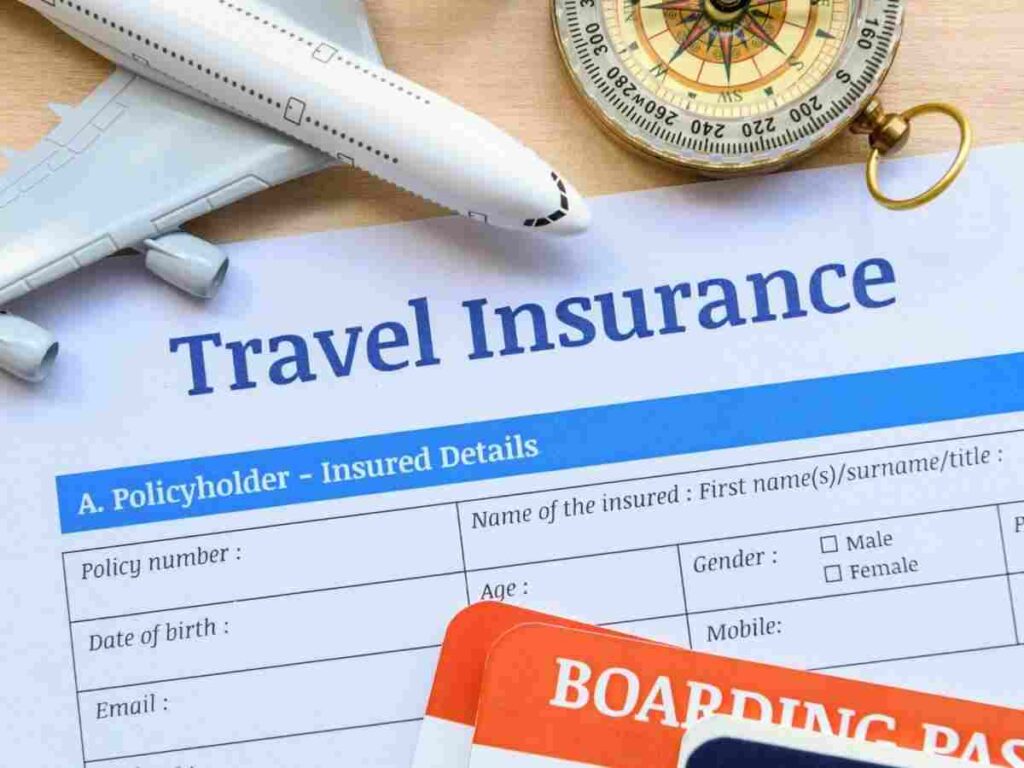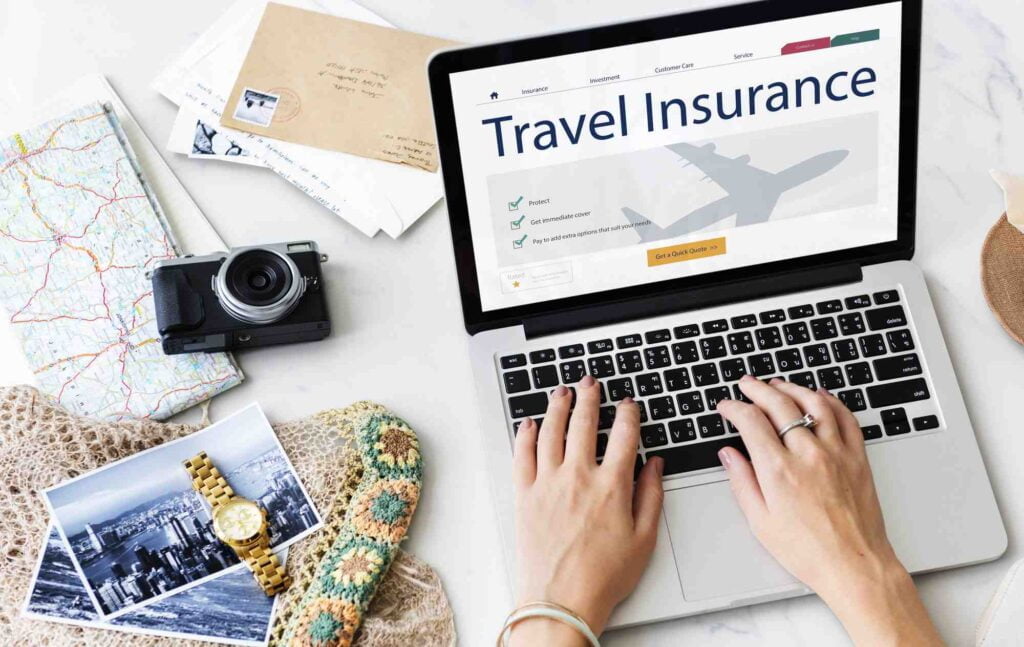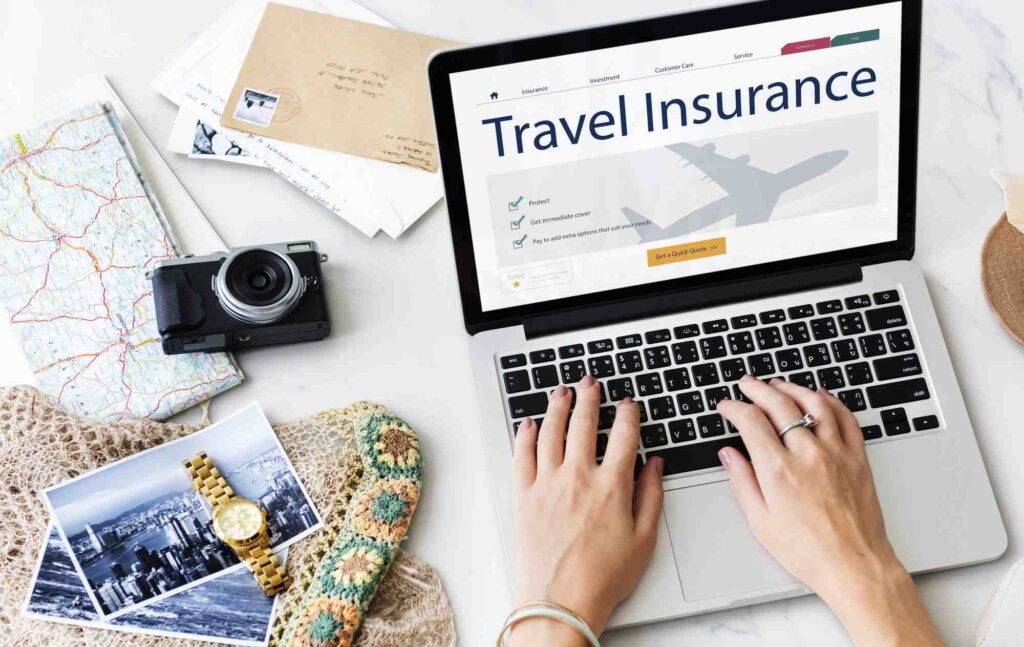Traveling for business can be exciting but also comes with its own set of risks. From unexpected flight cancellations to lost luggage or even medical emergencies, many things can go wrong. This is where travel insurance comes into play. But do you really need it for a business trip? In this article, we’ll explore the reasons why travel insurance might be a smart choice for your next work trip, and help you decide if it’s worth the investment. Whether you’re traveling across the country or overseas, understanding the benefits of travel insurance can give you peace of mind and let you focus on what really matters—getting the job done.
Understanding Travel Insurance

Travel insurance is a policy that provides financial protection and assistance in case things go wrong during your trip. This could include anything from medical emergencies, trip cancellations, delays, lost luggage, and even personal liability. For business travelers, these protections are crucial because disruptions can be costly and impact your professional commitments.
Types of Travel Insurance Coverage
There are several types of coverage within a travel insurance policy. Understanding these can help you decide what’s necessary for your business trip:
- This coverage reimburses you for pre-paid, non-refundable expenses if your trip is canceled or cut short due to covered reasons like illness, severe weather, or a family emergency.
- This coverage helps with medical expenses if you fall ill or get injured during your trip. It can also cover the cost of emergency evacuation if you need to be transported to a hospital or back home.
- Losing your luggage can be a significant inconvenience, whether it’s your laptop, presentation materials, or personal belongings. This coverage compensates you for lost or delayed baggage, ensuring you can replace essentials quickly.
- This covers legal expenses and damages if you accidentally cause injury or property damage during your trip.
- If your flight is delayed, this coverage can reimburse you for additional expenses like hotel stays, meals, and transportation.
Benefits of Travel Insurance for Business Trips

Travel insurance for business trips offers a range of benefits that can provide peace of mind and financial protection. Here are some key benefits:
- Financial Protection Against Unforeseen Events: Travel insurance can reimburse you for prepaid, nonrefundable costs due to travel delays, interruptions, and cancellations.
- Coverage for Medical Emergencies: In case of medical emergencies during your business trip, travel insurance covers your emergency medical expenses, offering peace of mind and financial security.
- Protection for Business Equipment: Travel insurance can cover the loss or theft of business equipment, such as laptops and other essential devices.
- Assistance Services: Many travel insurance policies offer 24/7 travel assistance services, which can be invaluable for business travelers facing unexpected issues.
- Trip Cancellation and Interruption Coverage: If you need to cancel or interrupt your trip due to covered reasons, travel insurance can help you recover the costs of prepaid expenses.
- Coverage for Personal Travel: If you add personal travel to your business trip, travel insurance can cover any issues that arise during the personal portion of your trip.
- Rental Car Coverage: Some travel insurance policies include coverage for rental car damage and theft, which can be particularly useful for business travelers.
- Baggage Delay Coverage: In case your baggage is delayed, travel insurance can reimburse you for essential items you need to purchase while waiting for your luggage.
- Liability Coverage: Travel insurance can provide liability coverage, protecting you from legal and financial liabilities in case of accidents or damages during your business trip.
- Coverage for Business-Specific Cancellations: Certain policies cover business-specific reasons for trip cancellations, such as important company issues or physical damage to your company.
GET YOUR TRAVEL INSURANCE QUOTES
By understanding these benefits, business travelers can make informed decisions about purchasing travel insurance and ensure they are protected against various risks.
Common Misconceptions
There are several common misconceptions about travel insurance that can lead people to underestimate its importance. Here are some of the most prevalent myths and the truths behind them:
1. “Travel insurance is just medical insurance.”
- Reality: While travel insurance does cover medical emergencies, it also includes protection for trip cancellations, lost luggage, travel delays, and more.
2. “I don’t need travel insurance for short trips.”
- Reality: Even short trips can be disrupted by unexpected events like flight cancellations, lost baggage, or sudden illnesses. Travel insurance provides coverage for these situations regardless of trip length.
3. “My credit card offers enough protection.”
- Reality: While some credit cards do offer travel insurance benefits, they often have limited coverage and may not include important protections like medical evacuation or trip interruption.
4. “Travel insurance is too expensive.”
- Reality: The cost of travel insurance is relatively low compared to the potential expenses of an emergency abroad. It provides valuable peace of mind and financial protection.
5. “I’m healthy and don’t need insurance.”
- Reality: Health is just one aspect of travel insurance. It also covers non-medical issues like trip cancellations, lost luggage, and travel delays, which can affect anyone.
6. “All travel insurance policies are the same.”
- Reality: Travel insurance policies vary widely in terms of coverage and exclusions. It’s important to compare different plans and read the fine print to ensure you get the coverage you need.
Assessing the Necessity of Travel Insurance
When considering whether to purchase travel insurance for a business trip, it’s important to assess the specific risks and needs associated with your journey. Below are some key factors to help determine whether travel insurance is necessary for your trip:
- International Travel: When traveling abroad, especially to countries with high medical costs or limited healthcare facilities, travel insurance is crucial for covering medical emergencies and evacuation.
- Expensive or Non-Refundable Trips: If you’ve invested a significant amount of money in non-refundable bookings, such as flights, hotels, and tours, travel insurance can protect you against trip cancellations or interruptions.
- Adventure or High-Risk Activities: If your trip involves activities like skiing, scuba diving, or hiking, travel insurance can cover accidents and injuries related to these activities.
- Travel During Unpredictable Seasons: Traveling during hurricane season or other times of unpredictable weather increases the risk of trip disruptions. Travel insurance can provide coverage for delays, cancellations, and other weather-related issues.
- Health Concerns: If you have pre-existing medical conditions or are traveling to areas with health risks, travel insurance can cover medical emergencies and provide access to necessary healthcare.
When You Might Skip Travel Insurance
While travel insurance is beneficial in many situations, there are times when you might consider skipping it:
- Flexible Travel Plans: If your travel plans are flexible and you have refundable bookings, you may not need travel insurance. Many airlines and hotels offer flexible cancellation policies.
- Short Domestic Trips: For short domestic trips, especially if you’re driving and staying with friends or family, travel insurance might not be necessary.
- Existing Coverage: If you already have coverage through your credit card, employer, or another source, additional travel insurance might be redundant.
- Minimal Financial Risk: If the financial risk of your trip is low (e.g., a budget trip with minimal prepaid expenses), you might decide to skip travel insurance.
GET YOUR TRAVEL INSURANCE QUOTES
By understanding when travel insurance is essential and when it might be skipped, you can make informed decisions that best suit your travel needs and budget.
Corporate Travel Insurance vs. Personal Travel Insurance
When it comes to business trips, understanding the difference between corporate travel insurance and personal travel insurance is crucial. Corporate travel insurance is typically provided by an employer as part of a company’s benefits package. It covers work-related travel, including medical emergencies, trip cancellations, and even coverage for business equipment like laptops and projectors. This type of insurance is designed to protect both the employee and the company, ensuring that business operations are not disrupted by unforeseen events.
On the other hand, personal travel insurance is purchased individually and offers broader coverage beyond just work-related incidents. It includes protection for personal activities you might engage in during a business trip, such as sightseeing or extending your stay for leisure purposes. While corporate travel insurance might suffice for most work-related needs, personal travel insurance can be a valuable supplement, especially if your trip involves high-risk areas, expensive personal items, or additional personal travel plans. Balancing the two ensures comprehensive coverage, safeguarding both your professional responsibilities and personal interests while traveling.
Is Travel Insurance Tax-Deductible for Business Trips?

Yes, travel insurance can be tax-deductible for business trips under certain conditions. The primary purpose of the trip must be for business reasons; if the trip is primarily for personal reasons, the travel insurance may not be deductible. Self-employed individuals can deduct travel insurance as a business expense on Schedule C (Form 1040), Profit or Loss From Business. Employees can deduct travel insurance as a miscellaneous itemized deduction on Schedule A (Form 1040), but only if the expenses exceed 2% of their adjusted gross income. Additionally, travel medical insurance can be included with other medical expenses in your tax filing if it qualifies as a medical expense.
It’s important to keep detailed records, such as receipts and invoices, to substantiate your travel insurance expenses. Consulting a tax professional is always a good idea to ensure you are correctly deducting travel insurance expenses, as tax laws can be complex and subject to change.
How to Choose the Right Travel Insurance Policy
Choosing the right travel insurance policy for a business trip can be crucial for ensuring peace of mind and financial protection. Here are some key factors to consider:
1. Coverage Options
- Trip Cancellation and Interruption: Look for policies that cover cancellations and interruptions due to business-specific reasons, such as company issues or physical damage to your company.
- Medical Coverage: Ensure the policy includes comprehensive medical coverage, including emergency medical evacuation.
- Business Equipment: Check if the policy covers loss, theft, or damage to business equipment like laptops and other essential devices.
2. Exclusions and Limitations
- Carefully read the policy to understand what is not covered. Common exclusions might include pre-existing medical conditions or certain high-risk activities.
3. Cost and Value
- Compare the costs of different policies and evaluate the value they offer. Sometimes, paying a bit more can provide significantly better coverage.
4. Reputation and Financial Stability
- Research the reputation and financial stability of the insurance provider. Look for reviews and ratings from other business travelers.
5. Assistance Services
- Opt for policies that offer 24/7 travel assistance and concierge services. These can be invaluable in case of emergencies or unexpected issues during your trip.
6. Customizable Coverage
- Some providers offer customizable coverage packages. This allows you to tailor the policy to your specific needs and preferences.
7. Multi-Trip Coverage
- If you travel frequently for business, consider policies that offer annual coverage for multiple trips. This can be more convenient and cost-effective.
8. Legal and Regulatory Considerations
- Ensure the policy complies with travel insurance regulations in the countries you will be visiting.
By considering these factors, you can choose a travel insurance policy that best suits your business travel needs and provides comprehensive protection.
Tips for Making a Claim
Filing a travel insurance claim can be straightforward if you follow these tips to ensure a smooth process:
- Contact Your Insurer Immediately: Notify your insurance provider as soon as an incident occurs. This helps start the claims process promptly and ensures you follow their specific procedures.
- Keep All Documentation: Save all receipts, medical reports, police reports, and any other relevant documents. These will be crucial for supporting your claim. Take photos of damaged items or any evidence related to your claim.
- Understand Your Policy: Familiarize yourself with your policy’s coverage limits and exclusions. Knowing what is covered can help you avoid unnecessary claims and understand what documentation is needed.
- Provide Detailed Information: When filing your claim, provide a clear and concise account of what happened. Include who was involved, what occurred, when and where it happened, and how it affected you.
- Follow-up: Keep track of your claim’s progress and follow up with your insurer if you don’t hear back within the expected timeframe.
- Avoid Common Mistakes: Don’t exaggerate your losses or provide inaccurate information, as this can lead to claim denial. Ensure you submit your claim within the timeframe specified by your policy.
Is Airbnb Travel Insurance Worth It?
By following these tips, you can increase the likelihood of a successful travel insurance claim and ensure you receive the benefits you’re entitled to.
FAQs
Q 1. Can I get coverage for a business trip that includes some personal travel?
Ans. Yes, many travel insurance policies can cover trips that combine business and leisure, but it’s important to check the specifics of your policy.
Q 2. Does travel insurance cover work-related injuries?
Ans. Travel insurance can cover medical expenses for injuries sustained during your trip, but it may not cover work-related injuries if they fall under workers’ compensation laws.
Q 3. How does travel insurance handle pre-existing medical conditions?
Ans. Some travel insurance policies offer coverage for pre-existing medical conditions if you meet certain criteria, such as purchasing the policy within a specified time frame after booking your trip.
Q 4. What should I do if I lose my business equipment during a trip?
Ans. Report the loss to local authorities and your insurance provider immediately. Keep all documentation and receipts to support your claim.
Q 5. Is there a maximum duration for each trip covered by business travel insurance?
Ans. Yes, most policies have a maximum trip duration, which can vary. It’s important to check your policy to ensure it covers the entire length of your trip.
Q 6. Can I purchase travel insurance for multiple business trips in a year?
Ans. Yes, many insurers offer annual travel insurance plans that cover multiple trips throughout the year, which can be more cost-effective for frequent travelers.
Q 7. Does travel insurance cover expenses if I need to return home early due to a family emergency?
Ans. Many travel insurance policies include trip interruption coverage, which can reimburse you for additional expenses incurred if you need to return home early due to a covered reason, such as a family emergency.
Q 8. What happens if my flight is delayed and I miss an important meeting?
Ans. Travel insurance can provide coverage for travel delays, including reimbursement for additional expenses like accommodation and meals. Some policies may also offer assistance with rebooking flights.
Q 9. How do I know if my credit card’s travel insurance is sufficient?
Ans. Review the coverage details provided by your credit card and compare them with standalone travel insurance policies to ensure you have adequate protection for your business trip.
Q 10. Can I extend my travel insurance coverage if my business trip is extended?
Ans. Many travel insurance providers offer the option to extend coverage if your trip is extended. Contact your provider to discuss your options.
Q 11. Can travel insurance cover the cost of a replacement employee if I am unable to attend a business trip?
Ans. Some travel insurance policies may cover the cost of sending a replacement employee if you are unable to attend the trip. Check the policy details for specific coverage.
Conclusion
In conclusion, whether you need travel insurance for a business trip depends on various factors, including the nature of your travel, your destination, and the coverage you already have through other means. While it might seem like an extra expense, the peace of mind and financial protection it offers can be invaluable, especially in unpredictable situations.
From safeguarding your health and business equipment to ensuring your trip proceeds as planned, travel insurance can be a smart investment for any business traveler. Before deciding, take the time to assess your specific needs, review the available policies, and choose coverage that aligns with your travel plans. In the end, having the right protection in place can allow you to focus on what truly matters—your business.

Shubham is a passionate insurance expert with years of experience in the industry. I write about home, auto, travel, life, and health insurance to help readers make informed decisions. My goal is to break down the details of coverage, costs, and claims in a straightforward, easy-to-understand way, so you can protect what matters most without the confusion.


